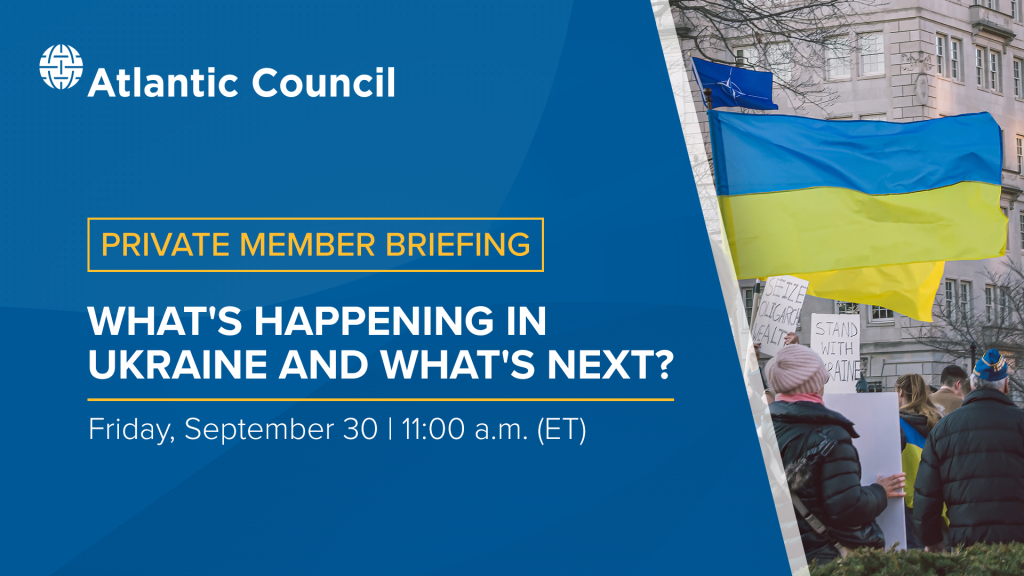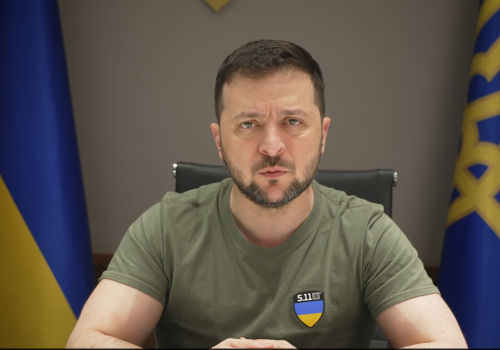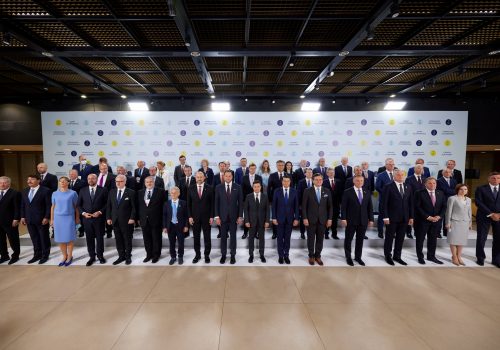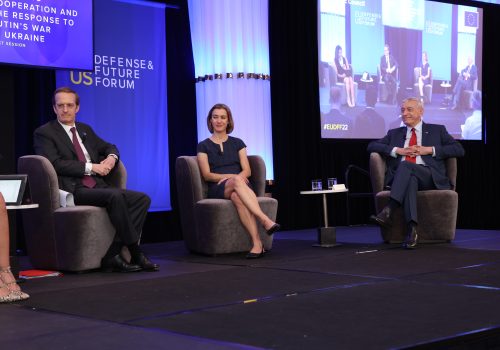
Last week, Russian president Vladimir Putin doubled down on his invasion of Ukraine, supporting illegitimate referenda in Russian-occupied territory, initiating a “partial mobilization,” and making nuclear threats. Putin’s announcement came as Ukraine has been launching successful counteroffensives, reclaiming territory taken after February 24th.
What do Russia’s actions mean for the future of the war in Ukraine? What are the practical implications of mobilization? Is Russia likely to use nuclear weapons – and, if so, how might the United States and its allies and partners respond? Will Ukraine continue to find success in its counteroffensives? What support does Ukraine need from Western partners to succeed?
In this exclusive members briefing, Atlantic Council experts weigh in on these questions and will highlight the work being done to advise and guide decision makers on the next phase of the crisis.
Introductory remarks

Sara Teichman
Senior Director, Philanthropic Partnerships
Atlantic Council
In conversation with
Related content
Related programs

The Eurasia Center’s mission is to enhance transatlantic cooperation in promoting stability, democratic values and prosperity in Eurasia, from Eastern Europe and Turkey in the West to the Caucasus, Russia and Central Asia in the East.

The Scowcroft Center for Strategy and Security works to develop sustainable, nonpartisan strategies to address the most important security challenges facing the United States and the world.





